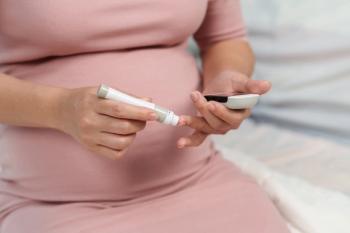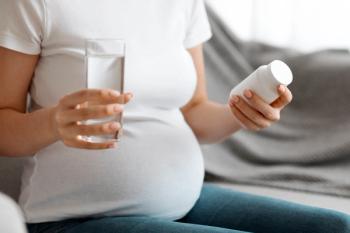
Finding the safest approach to hyperemesis
Pregnant patients with severe nausea and vomiting should probably not be managed with a peripherally inserted central catheter (PICC), suggests a relatively small trial presented at this year's American College of Obstetricians and Gynecologists meeting.
Pregnant patients with severe nausea and vomiting should probably not be managed with a peripherally inserted central catheter (PICC), suggests a relatively small trial presented at this year's American College of Obstetricians and Gynecologists meeting. Comparing PICCs, nasogastric tubes (Dobhoff), and medication alone, clinicians from the University of Utah found there were no differences with respect to gestational age at delivery, Apgar scores, or average birthweight. But maternal complications were significantly worse in the PICC group (P<0.001), contributing to infection, deep vein thrombosis, or both in 45.8% of the patients.
While the numbers on fetal complications were too small to generate any statistically meaningful conclusions, the investigators did find the admission rate to the neonatal intensive care unit was 12.5% (3/24) in the PICC group, versus 6% (2/33) in the medication group, and no admissions in the NG tube group. Similarly, intrauterine growth restriction occurred in 8.3% (2/24) of the PICC group, while neither the Dobhoff nor medication group experienced IUGR.
Holmgren CM, Silver RM, Porter TF et al. Comparison or treatments for pregnancies affected with hyperemesis. Obstet Gynecol. 2006;107(4 suppl.):92S.
Newsletter
Get the latest clinical updates, case studies, and expert commentary in obstetric and gynecologic care. Sign up now to stay informed.









